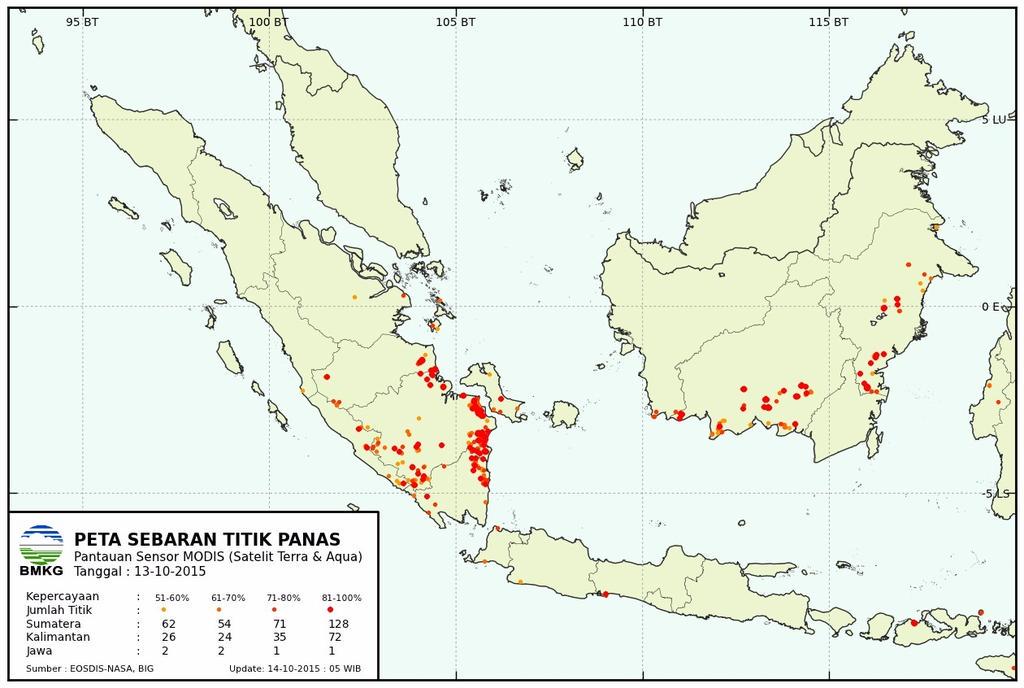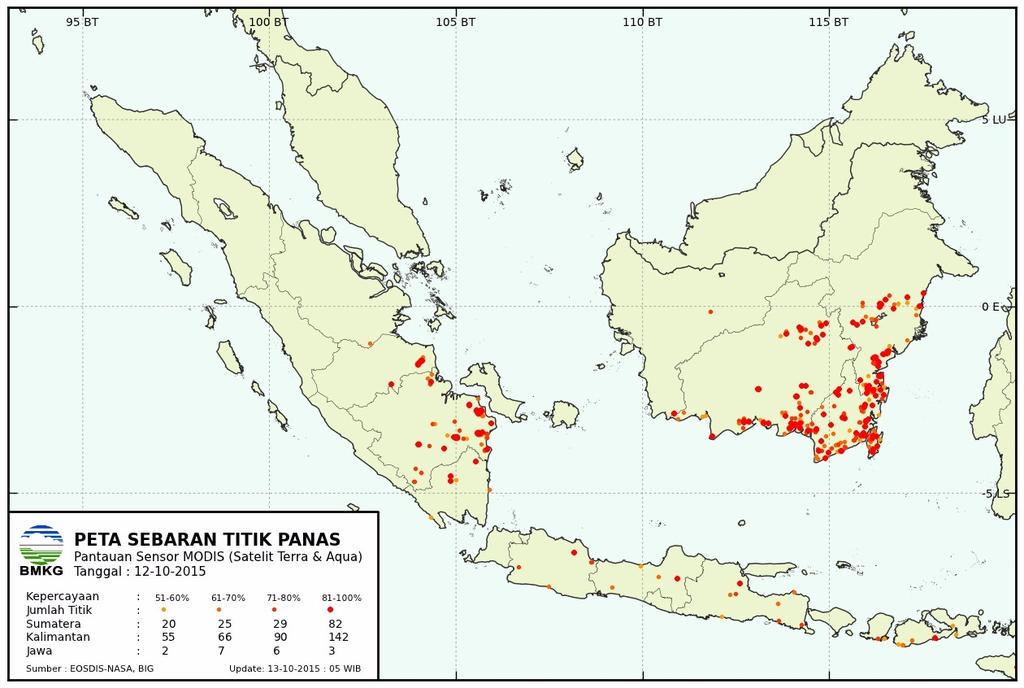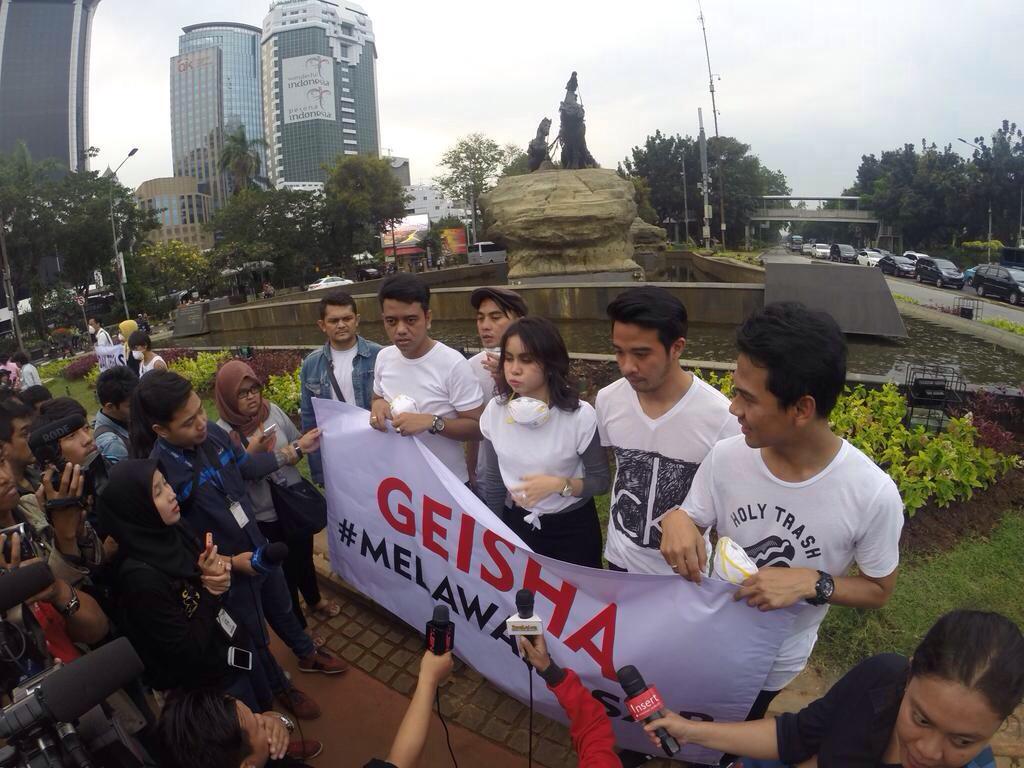- Burning peatlands in Ogan Komering Ilir continue as the frontline for the international firefighting effort in South Sumatra.
- Another Indonesian politician has called on President Joko “Jokowi” Widodo to declare the haze pollution a national disaster.
- Indonesia’s home affairs minister has hinted the archipelago may make greater effort to protect peatlands in Kalimantan and Sumatra.
Ongoing haze pollution on Tuesday led Riau’s acting governor to extend the province’s state of emergency until October 20, as Indonesia’s home affairs minister called on local politicians to review plantation licenses in their constituencies’ peatlands.
Indonesia’s meteorology agency recorded 315 hotspots in Sumatra at 5 a.m. local time Wednesday, more than double the 156 recorded at the same time on Tuesday. Some 230 of today’s hotspots were in South Sumatra, where Ogan Komering Ilir district continues to be ground zero for the seven-nation coalition tackling the fires.


“Because of the pollution caused by smoke we are extending the emergency status,” Arsyadjuliandi Rachman, Riau’s acting governor, said on Tuesday afternoon. The province’s emergency status enables the local government to draw on emergency funding to provide additional services to those affected by haze. Riau has been operating under a state of emergency since September 15.
The focus of the international effort to put out fires and contain underground hotspots remained on Ogan Komering Ilir on Wednesday, while a video of Lake Toba showed the site of the world’s largest volcanic eruption also under a cloud of smog. A local boat driver told Indonesian media visibility in the caldera was limited to just 100 meters.
As Indonesian politicians digested criticism of the archipelago’s handling of the crisis, there were signs this week that Jakarta is beginning to move toward the kind of action that could have an impact on the underlying causes of the haze.
Home Affairs Minister Tjahjo Kumolo called on regents to review concessions awarded in peatlands on Tuesday and indicated that at-risk concessions could at some stage be revoked.
This will be easier said than done – several local government leaders in Sumatra and Kalimantan are palm oil farmers-turned-politicians, and influential smallholder associations are likely to lobby against any attempt to curb the industry at a time when prices are hovering near the break-even point.
Meanwhile, another Indonesian politician called on President Joko “Jokowi” Widodo to declare the haze a national disaster and for a special haze task force to be formed in Indonesia’s parliament, the DPR.
“The government must declare the forest fires as a national disaster and the House of Representatives should establish a special committee on the problem of haze,” the senior member of Prabowo Subianto’s Great Indonesia Movement political party said.
Separately, the speaker of the DPR called on Jokowi to announce Luhut Pandjaitan – Indonesia’s coordinating minister for political, legal and security affairs – as the official in charge of the haze operation.
“I have conveyed this proposal to the president, urging him to name a coordinator to tackle the haze problem,” Setya Novanto told Antara, the state-run news agency. “The right person [for the purpose] is, indeed, Mr Luhut. But we leave the decision to the president.”
As more public figures joined Indonesia’s small-scale and fragmented protest movement against the haze, students at Nanyang Technological University (NTU) in Singapore held an event to build the best mobile app harvesting data on the haze.
This Is @geishaindonesia support for #MelawanAsap – Send Our Respect to Them via @MusicaStudios pic.twitter.com/Ypw3axTodC
— #MelawanAsap (@melawanasap) October 9, 2015















